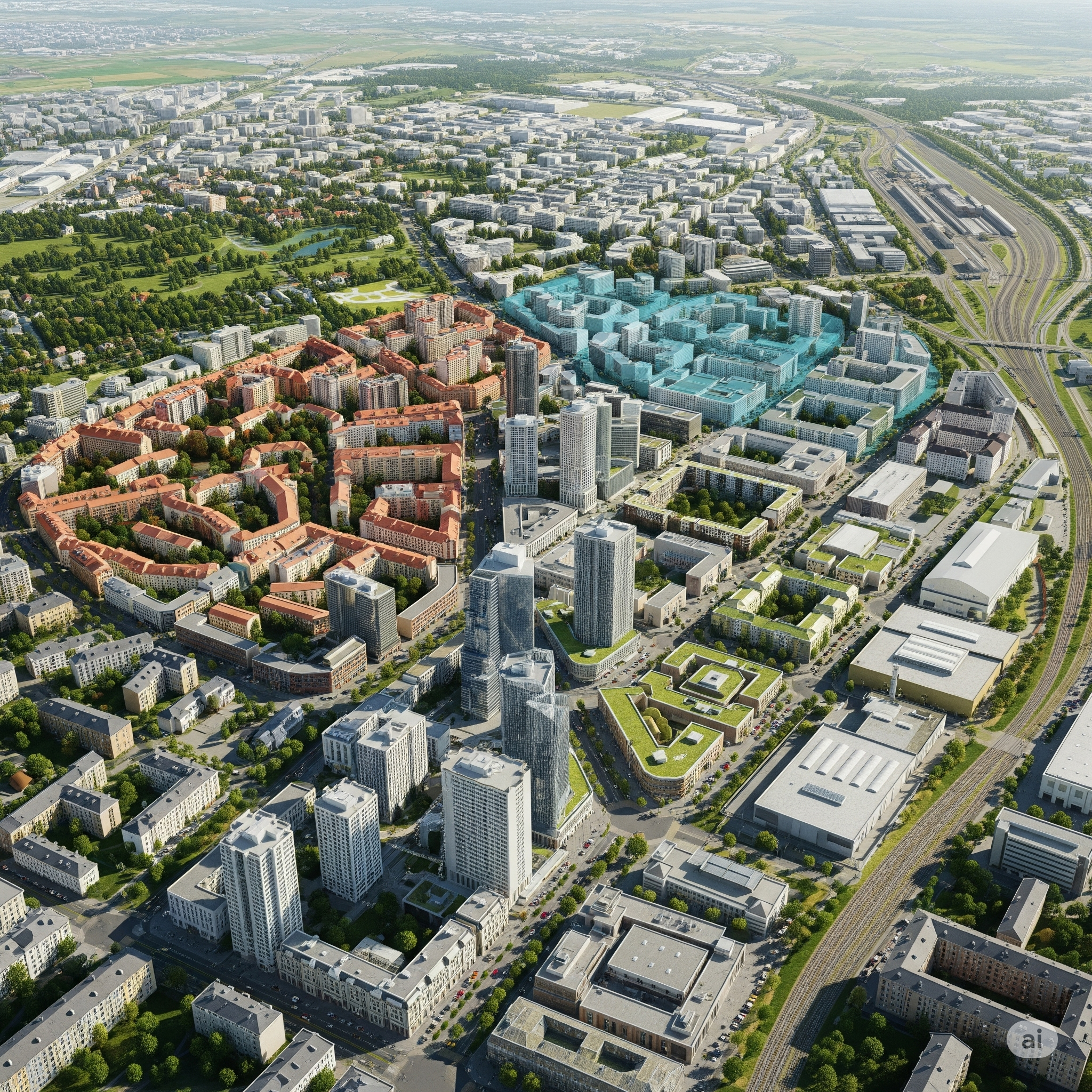Zoning may not be the flashiest topic in real estate, but it’s one of the most powerful tools that determines how our cities grow, who lives where, and what kind of developments happen in any given location.
Whether you’re a homebuyer, investor, planner, or developer in Kenya or anywhere else understanding zoning laws is essential to making informed real estate decisions.
As cities expand and populations surge, zoning provides a structured way to balance competing land uses, promote orderly development, and prevent urban chaos. In Kenya, zoning is increasingly gaining prominence as urban authorities seek to manage density, preserve green space, provide infrastructure, and stimulate investment in a sustainable manner.
What is Zoning?
Zoning is a land-use planning method used by local governments to regulate how land in specific areas can be used. It divides land into different zones residential, commercial, industrial, agricultural, recreational, and mixed-use each with its own regulations on the type of structures allowed, building heights, plot sizes, density, and setbacks.
Zoning ensures that incompatible land uses are kept apart (for example, separating factories from schools or homes), while also guiding long-term city development.
The Importance of Zoning in Real Estate
- Provides Predictability for Investors
Zoning tells developers and property buyers what they can (and cannot) do on a parcel of land. This reduces investment risk and encourages long-term planning. - Protects Property Values
Homeowners are more likely to invest in neighborhoods where zoning ensures nearby land won’t suddenly be used for a noisy or polluting industry. - Promotes Public Health and Safety
Zoning keeps hazardous or high-traffic land uses away from residential areas. It also ensures access to sunlight, ventilation, emergency services, and safe infrastructure. - Supports Infrastructure Planning
Authorities use zoning to align roads, water, sewer, and electricity supply with anticipated population densities and land uses. - Encourages Balanced Urban Growth
Zoning helps ensure that no single area becomes overcrowded while others remain underdeveloped, encouraging equitable access to services and amenities.
Common Zoning Classifications
While zoning categories may vary by county or municipality, some standard designations include:
- Residential Zones (R): For housing developments, these zones may have sub-categories like low-density (single-family homes), medium-density (townhouses), and high-density (apartments).
- Commercial Zones (C): For businesses such as offices, shops, and restaurants. Some may restrict nightclubs or high-traffic operations.
- Industrial Zones (I): Reserved for manufacturing, warehousing, and heavy-duty uses that may require separation from populated areas.
- Agricultural Zones (A): For farming activities and preservation of rural character. Often comes with limitations on subdivisions.
- Mixed-Use Zones (MU): Allow a combination of residential, commercial, and sometimes industrial uses. Increasingly popular in urban redevelopment.
- Special Purpose Zones: Include public institutions, parks, conservation areas, and transportation corridors.
Zoning in Kenya: Current Trends
Kenya’s major cities like Nairobi, Mombasa, Kisumu, Nakuru, and Eldoret are all guided by zoning ordinances established by their respective county governments and urban planning departments.
Some key zoning trends and challenges in Kenya include:
- Rezoning of Suburban Areas: Previously low-density suburbs are being rezoned for high-rise developments due to increasing housing demand, especially in Nairobi’s Kileleshwa, Kilimani, and Lavington areas.
- Mixed-Use Development Growth: Urban centers are embracing mixed-use zones to encourage live-work-play environments and reduce traffic congestion.
- Urban Sprawl vs. Vertical Growth: Zoning policies are being revised to support vertical expansion in core areas and discourage unchecked sprawl on city outskirts.
- Digital Zoning Maps & Online Access: Counties are gradually digitizing planning documents and zoning maps, making it easier for developers and investors to make decisions.
- Public Participation in Zoning Amendments: Under Kenya’s Constitution and Urban Areas and Cities Act, zoning changes often require stakeholder consultation.
How Zoning Affects Real Estate Decisions
- Site Selection
Zoning guides buyers and developers to suitable land for their intended use. For example, a residential apartment project cannot legally proceed in an agricultural zone without rezoning. - Land Valuation
Properties in zones with greater development rights (e.g., commercial or high-density residential) typically fetch higher prices. - Building Permissions
Zoning regulations determine what kind of building permits are approved, including floor-area ratios (FAR), maximum height, and building footprint. - Return on Investment
Understanding zoning can help developers maximize a site’s potential, such as going vertical in areas zoned for high-rise or adding a commercial wing to a mixed-use plot. - Future-Proofing
Buying land in zones marked for future infrastructure or economic development (e.g., special economic zones, new highways) can yield long-term gains.
Challenges in Kenya’s Zoning Landscape
- Non-Compliance & Informality: Many developments, especially in informal settlements or peri-urban zones, happen without regard to zoning laws, creating disorder.
- Weak Enforcement: County governments often lack the resources or political will to enforce zoning codes strictly.
- Corruption & Irregular Rezonings: Cases of irregular land use change or political influence undermining zoning plans are common.
- Public Awareness: Many land buyers and even real estate agents lack awareness of zoning laws and their implications.
Navigating Zoning: Tips for Buyers and Developers
- Always Request a Zoning Report
When purchasing land, ask the local planning department for a zoning certificate or check the official land use plan. - Work with a Town Planner
Professional town planners can interpret zoning codes, recommend compliant development ideas, and assist with rezoning applications. - Avoid Unauthorized Land Use
Building against the zoning code risks demolition, legal issues, or loss of permits. - Attend Public Planning Forums
These forums offer insights into upcoming zoning changes that could affect land use, infrastructure, and property values. - Factor in Infrastructure Plans
Zoning often aligns with upcoming roads, sewer lines, or public transport corridors. Building in the path of a highway or pipeline could lead to forced acquisition.
The Future of Zoning in Kenya
As Kenya moves toward more structured urban development through the National Urban Development Policy and Vision 2030 goals, zoning will continue to evolve. Key trends include:
- Transit-Oriented Zoning: Aligning higher density housing around public transit nodes.
- Green Zoning: Promoting environmental sustainability by mandating open spaces and eco-sensitive designs.
- Inclusionary Zoning: Requiring private developments to allocate a portion of units for low-income residents.
- Smart Zoning Tools: GIS-based zoning platforms are being explored to allow better visualization, updates, and monitoring.
Zoning is the Blueprint for Tomorrow’s Cities
In the world of real estate, zoning is like the rulebook that guides the game. Whether you’re buying land, developing property, or investing in urban growth, understanding zoning is key to avoiding legal setbacks and unlocking long-term value.
In Kenya’s fast-evolving urban spaces, zoning will play a defining role in shaping cities that are not just profitable, but livable, equitable, and sustainable. So, before you break ground check the zone. It’s the smartest move you can make.

